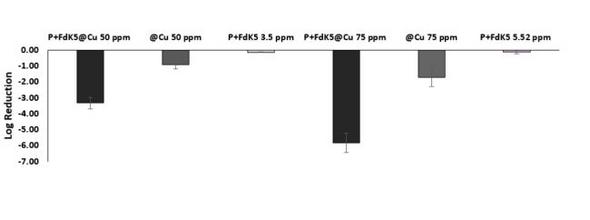| Category | Agriculture, Life Sciences |
| Keywords | Anti-bacterial, Agtech, |
| Current development stage | General list: TRL4 Technology validated in lab |
| Collaboration Opportunity | Licensing of Technology |
Professors:
Saul Burdman – The Robert H. Smith Faculty of Agriculture, Food and Environment
Zvi Hayouka – The Robert H. Smith Faculty of Agriculture, Food and Environment
Background
Chemical control of bacterial plant diseases predominantly relies on copper (Cu)‐based bactericides. These compounds, however, possess limited efficacy, low solubility and are easily washed from the plant surface by overhead irrigation or rain. Frequent sprays with relatively high concentrations of Cu can cause phytotoxicity, but low concentrations lead to the emergence of Cu-resistant bacterial strains. Furthermore, copper spraying increases production costs and environmental contamination, without necessarily providing adequate protection. The agricultural field is faced with an urgent need to develop novel technologies to manage bacterial plant diseases and reduce food loss.
Our Innovation
Prof. Hayouka has developed anti-microbial peptides entrapped inside a copper metal matrix which creates a synergistic affect. This technology is the first peptide-based plant-protection agent that reduces disease severity. The designed peptides are composed of a specific amino acids mixture that has shown at least a 50% reduction in disease severity. It has also been shown to suppress bacteria growth and prevent the bacteria from spreading. The copper matrix physically protects the peptides, allows for slow release of the peptides and also functions as an antimicrobial agent.
The findings published in Nature[1] indicate that this bactericidal antimicrobial biomaterial could be utilized to eradicate a broad spectrum of bacteria and fungi as well as antibiotic-resistant pathogens in the health, agricultural and environmental industries. The advantages of this technology are:
- Broad spectrum effect against bacteria and fungi
- Antimicrobial peptides are physically protected by the copper matrix
- Antimicrobial peptides and copper are released slowly
- Prolonged effect – resistance is not expected in the future
- No toxicity to the host
- Peptides and copper act synergistically
Technology
Entrapment of peptides with antimicrobial activity in a matrix of bactericidal metals like copper (Cu) may lead to novel composites with antimicrobial properties that are substantially higher than those exerted by the individual components alone. We are demonstrating the efficacy of the entrapment of antimicrobial peptides in copper matrix with great activity.
The figure below shows a killing assay towards Acidovorax citrulli M6. The antimicrobial effect of the composites carrying P+FdK5 peptide is examined. In this experiment bacteria were exposed to the treatments for 30 min. All results represent averages and standard errors of at least three independent repeats per each treatment.

Opportunity
Yissum has filed for patent protection and the PCT number is PCT/IL2020/050681. We are looking for industry partners to license this technology in the fields of health, agricultural and environmental applications.
